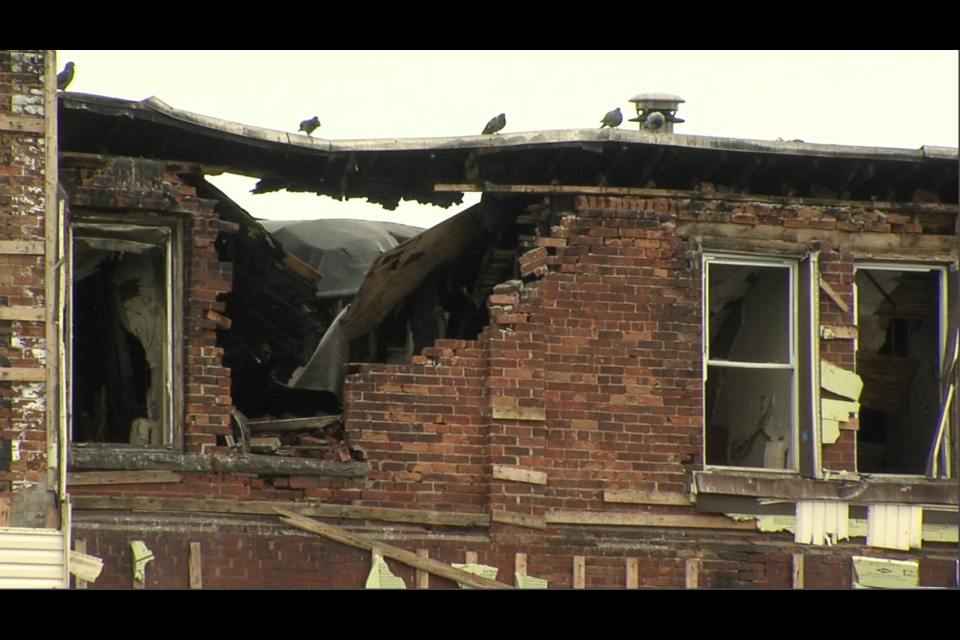THUNDER BAY — More than half a year since fire ripped through the upper part of a converted rooming house, the decrepit structure stands out as an eyesore in Thunder Bay's south core.
City officials may soon have to decide whether to demolish the former Oddfellows Hall in the absence of the owner's cooperation, with no guarantee it will recover the cost later.
The Thunder Bay District Health Unit initially ordered the three-storey rooming house on May Street vacated for health and safety reasons, four months before the fire.
After the March 1, 2020 blaze, the city issued the Markham-based numbered company that owns the property a notice of violation of the property standards by-law, requesting either the repair or demolition of the building.
The notice was ignored.
Two orders issued by Thunder Bay Fire Rescue also allegedly brought an inadequate response.
The fire department required the owner to keep the building secure after the fire, but it was subsequently called to put out other small fires, and found that people had been getting inside.
The department then issued an order under the Fire Protection and Prevention Act requiring the removal of the building for public safety.
Charges for failure to comply with both orders have now been filed under the Provincial Offences Act, and are still before the court.
At the end of July, the city issued an order under the property standards by-law requiring repairs or demolition of the building.
The city has not disclosed the deadline for compliance with that order, but it's believed to be later this month.
Should the owner of the building still fail to respond, the city will then have two options to consider.
It can take the company to court for failure to comply with an order, or it can demolish the property, clean it up, and charge the cost back to the owner by adding it to the property taxes.
In a situation such as this, the owed amount that's added to the tax bill becomes a priority lien, meaning that any money paid toward taxes must be applied to it first.
However, that still doesn't mean the city would ever be reimbursed for its costs.
If an owner defaults on taxes, a property can be seized by the city and ultimately put up for sale.
The question then becomes how much a buyer is willing to pay for a vacant lot.
Doug Vincent, manager of licensing and enforcement, told Tbnewswatch "I do know there's a desire to get that building dealt with...we have to exhaust all legal means."
Vincent said the city always wants to avoid its other taxpayers having to pick up the tab in these circumstances, but that can be challenging.
"Any money that's not recovered from a lien would essentially have been paid for by the citizens. The taxpayer would then end up paying for the cleanup, and we don't want that," he said.
